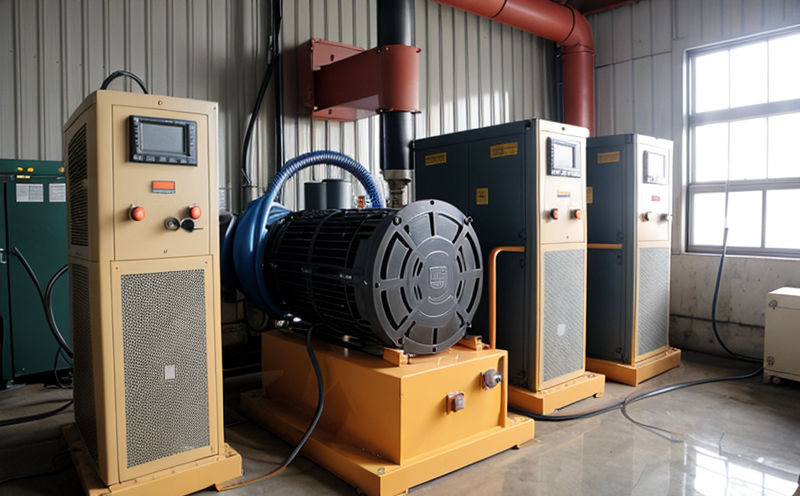ASTM D5453 Total Sulfur Testing in Power Generation Fuels
The ASTM D5453 total sulfur testing method is a critical standard used by power generation facilities worldwide to ensure compliance with fuel specifications and environmental regulations. This test measures the total sulfur content in various fuels, including coal, natural gas, oil, and biomass-derived feedstocks. The primary purpose of this test is to monitor and control sulfur emissions, which are significant contributors to air pollution and acid rain.
Understanding the role of sulfur in fuel performance is crucial for optimizing combustion processes and minimizing environmental impact. Sulfur can cause corrosion issues within power generation equipment, leading to increased maintenance costs and potential safety hazards. By adhering to ASTM D5453 standards, operators ensure that their fuels meet stringent quality requirements, thereby enhancing operational efficiency and sustainability.
The test procedure outlined in ASTM D5453 involves several steps including sample preparation, digestion of the fuel, and subsequent analysis using either microcoulometric titration or colorimetric methods. The precision and accuracy of these tests are paramount for reliable results. Laboratories specializing in this service typically use state-of-the-art equipment such as coulometers to achieve high levels of detection sensitivity.
Compliance with ASTM D5453 is essential not only for meeting regulatory requirements but also for maintaining the integrity of power generation processes. Many countries have implemented regulations that mandate maximum allowable sulfur content in fuels used by utilities. For instance, the U.S. Environmental Protection Agency (EPA) has set stringent limits on sulfur dioxide emissions from coal-fired plants under its Clean Air Act.
Operators must stay informed about changing regulatory landscapes and adapt their testing protocols accordingly. Regularly updated knowledge ensures that facilities remain compliant with evolving standards and contribute positively to environmental protection efforts.
| Applied Standards |
|---|
| ASTM D5453-19: Standard Test Method for Total Sulfur in Petroleum Products (High-Temperature Neutralization Coupled with Coulometric or Colorimetric Detection) |
| ISO 17820:2019: Determination of sulfur content in coal and lignite by coulometry using a high-temperature neutralization pretreatment |
The table above highlights two key international standards that support ASTM D5453. These guidelines provide clear instructions on how to conduct the test accurately and consistently, ensuring reproducibility across different laboratories.
- Sample Preparation: Proper handling of samples before analysis is crucial for accurate results.
- Instrumentation: Advanced analytical tools like coulometers are essential for precise measurements.
The combination of these factors guarantees reliable data that can be used to make informed decisions regarding fuel quality and operational adjustments.
Applied Standards
| Standard Name | Description |
|---|---|
| ASTM D5453-19 | This standard specifies the procedure for determining total sulfur content in petroleum products using high-temperature neutralization coupled with either coulometric or colorimetric detection. |
| ISO 17820:2019 | An international standard that provides a method for measuring sulfur content in coal and lignite by means of coulometry following high-temperature neutralization pretreatment. |
Quality and Reliability Assurance
- Regular calibration of analytical instruments to ensure accuracy and precision.
- Implementing strict quality control measures during sample preparation and analysis stages.
- Participation in proficiency testing programs organized by recognized bodies such as NIST (National Institute of Standards and Technology).
Quality assurance practices are integral to maintaining reliable test results. By adhering to rigorous protocols, laboratories can provide consistent and accurate measurements that meet or exceed industry expectations.
Customer Impact and Satisfaction
- Supports regulatory compliance ensuring environmental standards are met.
- Improves operational efficiency by providing actionable data on fuel quality.
- Fosters trust between stakeholders through transparent reporting practices.
Implementing ASTM D5453 total sulfur testing has a direct positive impact on both the environment and customer satisfaction. It enables companies to operate sustainably while complying with legal requirements, which ultimately enhances their reputation in the market.





